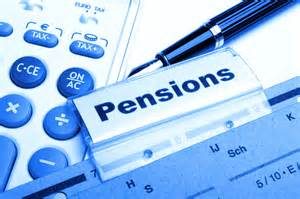In the second of two parts, John Lowe the Money Doctor itemises the remaining 5 of the 10 things you need to know about pensions in the season where tax returns are due next month for the self -employed and companies. Maximising the tax relief on pension contributions makes total sense if you have made profits or you have an income tax liability as a sole trader or partner. With talk of auto-enrolment commencing in 4 years’ time ( far too late ), 56% of mortgage borrowers believing they will still be repaying their mortgage after retirement and talk of retirement age being extended to age 70, it is more important than ever to address your retirement planning NOW
1. What should we do now once the pension plan is in place ?
You can work out with your adviser the amount of money on a monthly basis you will need to keep you in the luxury you have become accustomed to when you retire. This will include inflation, your attitude to risk and your primary retirement objective – e.g. do you have any desire to leave assets behind and merely wish to have enough income to see out your days ? You will also need to have an investment strategy put in place. Your fund needs to grow.
2. Review and review..
It is really important that you review your pension on a regular basis i.e. at least once a year. The size of your pension fund is driven by a number of factors – the performance of the assets your pension is invested in, fees and charges, the contributions that you make and the length of time between starting the pension and retirement age.
Most pensions are invested in a mixture of Shares, Property, Bonds and Cash. Fortunately, over the last 7 years, other than cash, these asset classes have grown handsomely all but the last stagnant 9 months or so. But just like 9 years ago, we could experience another “correction” – the next Bear market. For an individual with over 10 years to retirement age, this should not be an issue. However, for those people who are closer to retirement age, there could be a detrimental effect on the final income that they will receive at retirement due to timing.. Therefore, it is crucial to review your pension every year.
3. Am sorted – my employer is contributing…
Having an employer make a contribution to your pension is very advantageous for two reasons:
- The contribution that your employer makes is not taxable either as an income or a Benefit in Kind
- It increases the overall contribution that goes into your pension fund
However, many people who are lulled into a false sense of security because they are in an employer sponsored pension. They believe that this pension is somehow guaranteed and that it does not need to be reviewed, whether a Defined Benefit Pension or a Defined Contribution Pension. Many also believe 5% contribution from the employer along with their own 5% will suffice for their future retirement income. Try living off 10% now !
If you are in an employer sponsored pension, you should still review this pension on a regular basis as well.
4. Obtaining independent advice
When you meet an adviser for the first time, you should be given a Terms of Business. This will tell you what insurance and investment agencies the adviser maintains plus how the adviser earns their fees. Most firms are paid by the insurance companies. It is important therefore for you to know the remuneration the adviser earns from doing business with you
5. The 48 hour rule…
For most people, apathy ignorance and lack of time are the three killjoys when it comes to making decisions on pensions and most things financial. Another factor is the 48 hour rule. Attending a seminar or reading an article such as this is a complete waste of time if firstly this is relevant to you and secondly you then do not act on it within 48 hours. Save now before it is too late.

